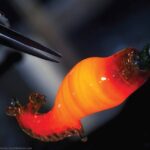The recent U.S. Supreme Court decision that ruled human genes cannot be patented is likely to be viewed by many rheumatologists and other physicians as a good decision that will provide greater access to genetic testing, according to one expert.
“It opens up the use of the genome for both diagnostic purposes as well as for research,” says James Evans, MD, PhD, Bryson Distinguished Professor of Genetics and Medicine at the University of North Carolina at Chapel Hill. “And that’s ultimately the most positive message about this. Whether you’re a researcher or whether you’re a clinician, you should see this decision as one that enables what you are trying to do.”
The Supreme Court decision ruled that naturally occurring genes can’t be patented, but synthetic DNA—known in genetics as complementary DNA (cDNA)—remains eligible for patents.
In healthcare overall, the decision is expected to lower costs for genetic tests, and Dr. Evans believes the decision’s biggest rheumatologic impact will be on practicing physicians.
“In the clinical realm, I think the practical impact is that when rheumatologists wish to order a genetic test on somebody, which they may increasingly do over the next five or 10 years as we learn more about the genetic underpinning of rheumatologic disease, they will not have to worry about that testing being unattainable or limited because of patents.”
“It’s good news for patients because there have been issues with access to, for example, genetic testing because of patent-enabled exclusivity,” Dr. Evans adds. “It’s good for physicians because we have a choice now on where we can send tests and analyses. I think it’s good for researchers and the market because, frankly, it opens the ability to use these fundamental human resources … that’s good news for lots of people.”
Richard Quinn is a freelance writer in New Jersey.


